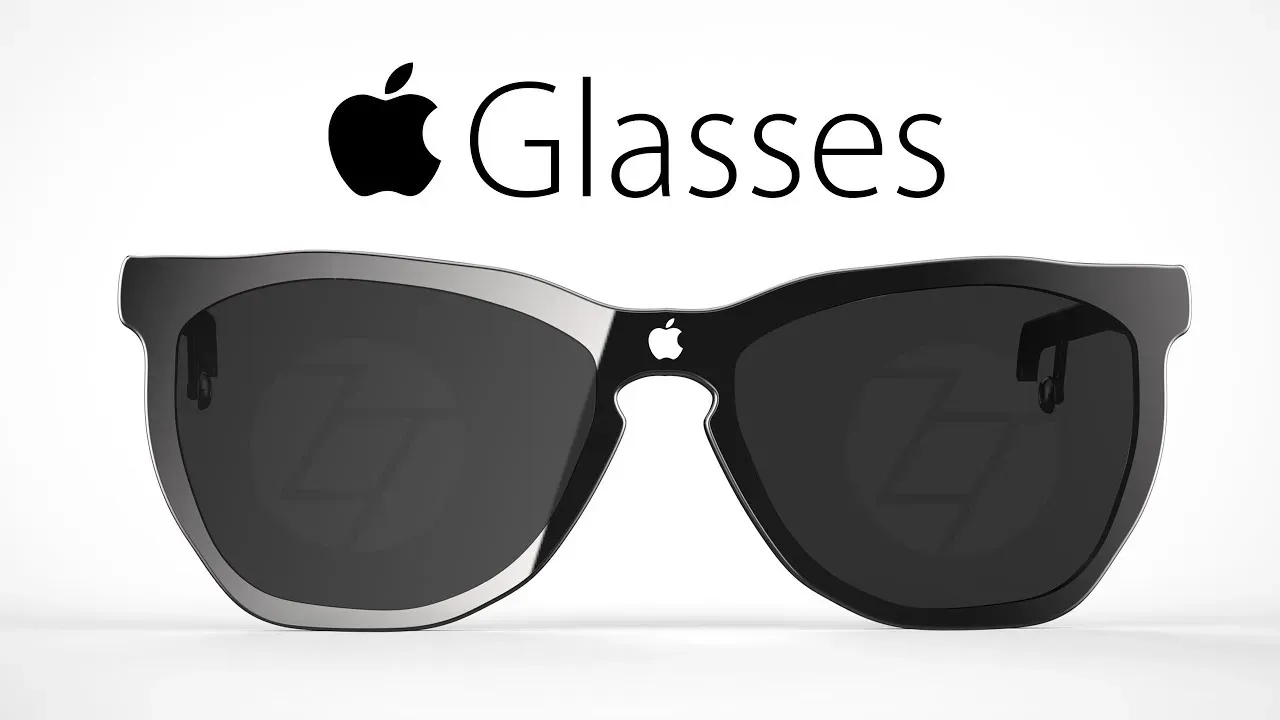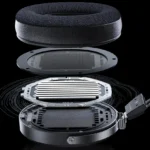Apple smart glasses have been the subject of much speculation, but recent reports suggest that the tech giant has halted its development efforts. After years of anticipation and excitement about potential Apple AR glasses, it appears that the company is shifting its focus away from this ambitious project. The initial aim was to create a formidable competitor to Meta’s smart glasses, such as the Ray-Ban models, but the challenges faced during development proved too significant. With the Vision Pro’s disappointing launch and ongoing struggles with AR VR technology, Apple is now navigating a crossroads. While the dream of Apple smart glasses may be on hold, executives remain hopeful for a future where such a device could still emerge, perhaps even as a more affordable alternative to their premium offerings.
The discontinuation of Apple’s smart eyewear initiative has sparked conversations about the future of augmented reality devices within the tech industry. Known colloquially as Apple AR glasses, these wearable technologies were envisioned to enhance everyday experiences, potentially rivaling other products like Meta’s smart glasses. Despite the excitement surrounding these innovations, Apple’s Vision Pro faced significant challenges, including high pricing and a lack of consumer engagement. The company has a history of project cancellations, including the recent abandonment of a self-driving car initiative, raising questions about its strategic direction in the AR space. Nevertheless, whispers of ambition linger among executives who still envision a day when standalone AR glasses could redefine personal computing.
The Future of Apple Smart Glasses: A Missed Opportunity
The recent news regarding Apple’s decision to halt the development of its smart glasses has sparked significant discussions among tech enthusiasts and industry analysts alike. Initially, Apple aimed to create a product that could rival Meta’s offerings, particularly the Ray-Ban smart glasses. However, the project’s cancellation highlights a broader trend in Apple’s recent product strategy, which has included several high-profile cancellations. The Vision Pro, while innovative, did not perform as expected in terms of market reception, leading to questions about Apple’s focus and direction in the competitive AR/VR landscape.
Rumors of Apple AR glasses have circulated for over a decade, building anticipation among consumers and developers. Yet, the reality of the situation is that Apple seems to have struggled with the vision and execution of this product. The initial prototypes were designed to connect to iPhones, but limitations in functionality and battery drain were major drawbacks. As a result, expectations have not only been unmet but have also led to increased skepticism about Apple’s capabilities in AR technology.
The Impact of Vision Pro on Apple’s Product Strategy
Apple’s Vision Pro was intended to set the stage for its entry into the AR/VR market, but the device’s high price point and niche audience have posed significant challenges. Analysts suggest that Apple miscalculated its approach, focusing too much on professional applications and neglecting the broader consumer market. With declining sales and an inventory surplus, there are growing concerns about how Apple will proceed with its AR strategy moving forward. The Vision Pro’s lukewarm reception raises questions about how it will influence the development of future products, including the anticipated successor.
The Vision Pro’s setbacks may also reflect deeper issues within Apple’s product development teams. Reports indicate that the teams have faced shifting goals and unclear directives, complicating their ability to innovate effectively. As Apple contemplates its next steps in AR technology, it is crucial for the company to streamline its focus to avoid further product cancellations and ensure that upcoming releases, including potential smart glasses, are better aligned with market needs.
Meta’s Growing Dominance in the Smart Glasses Market
As Apple steps back from developing its smart glasses, Meta continues to strengthen its position in the AR and VR markets. With the upcoming release of its own smart glasses, slated for 2027, Meta aims to leverage its existing ecosystem to capture a larger share of the consumer market. By integrating social features and seamless connectivity with its platforms, Meta is poised to offer a compelling alternative to what Apple had initially envisioned.
The development of Meta’s smart glasses is indicative of a broader trend towards social integration in AR technology. As Apple shifts its focus, many consumers are left wondering if they will ever see a comparable product from the tech giant. While it’s clear that Meta is aggressively pursuing this market, Apple’s hesitation raises concerns about its ability to keep pace with rapidly evolving AR/VR technology.
Challenges in AR/VR Technology and Apple’s Response
The challenges faced by Apple in the AR/VR sector reflect broader issues within the industry. High costs, technical limitations, and consumer hesitance have all contributed to a challenging landscape. Apple’s initial attempts with the Vision Pro illustrate how difficult it can be to create a product that resonates with a wide audience. As the company navigates these setbacks, it must also consider how to effectively harness AR technology to enhance user experiences without alienating potential customers.
Despite the recent setbacks, Apple remains committed to exploring AR technology. Several unnamed executives are reportedly still hopeful about developing standalone AR glasses in the future. This ambition indicates that while the current project may have been canceled, Apple’s long-term vision for AR remains intact. The company must now focus on learning from its experiences to ensure that any future offerings are both innovative and accessible.
Lessons Learned from Apple’s Smart Glasses Cancellation
The cancellation of Apple’s smart glasses project serves as a cautionary tale for tech companies venturing into the AR/VR market. The experience underscores the importance of understanding consumer needs and the significance of thorough market research. Apple’s ambition to create a competitive product in the face of Meta’s success highlights the risks of overreaching without a solid understanding of the market dynamics.
Furthermore, the project’s termination illustrates the need for companies to maintain a clear vision and direction throughout the development process. Rapidly changing objectives can hinder innovation and lead to wasted resources. For Apple, taking these lessons to heart will be crucial as it re-evaluates its strategies in AR technology and seeks to align future products with the demands of an evolving marketplace.
The Evolution of AR Technology: What’s Next for Apple?
As the AR landscape continues to evolve, Apple must adapt its strategies to remain competitive. The cancellation of its smart glasses project does not signal the end of its AR aspirations; rather, it presents an opportunity for the company to regroup and innovate. Apple has a history of redefining markets with its products, and its ongoing commitment to AR technology suggests that it is merely taking a step back to reassess its approach.
Looking ahead, Apple may choose to focus on developing more integrated AR experiences that complement existing products such as the iPhone and iPad. By leveraging its current ecosystem, Apple can create a seamless user experience that enhances its brand appeal. In doing so, the company can establish a stronger foothold in the AR market when it eventually decides to launch its long-awaited smart glasses.
Comparing Apple Smart Glasses with Meta’s Offerings
In the competitive landscape of AR technology, a comparison between Apple’s potential smart glasses and Meta’s existing models reveals distinct strategic differences. Meta’s approach has focused on creating affordable, consumer-friendly devices, while Apple has historically targeted high-end markets with premium pricing. This disparity in strategy could be a pivotal factor in determining the success of future devices from either company.
While Apple has yet to release a consumer-grade AR product, Meta has already established a user base with its smart glasses. The difference in market positioning raises questions about how Apple will define its offerings when it eventually re-enters the AR space. Understanding the lessons learned from competing products will be vital for Apple as it seeks to carve out its niche in the AR and VR technology sectors.
The Role of Consumer Feedback in AR Product Development
Consumer feedback plays a crucial role in the development of any tech product, and this is especially true for emerging technologies like AR and VR. Apple’s experience with the Vision Pro and the subsequent cancellation of its smart glasses project highlight the importance of listening to user preferences and addressing their concerns effectively. As Apple moves forward, it must prioritize consumer insights to ensure that its future products align with market expectations.
Meta’s success with its smart glasses can be partially attributed to its responsiveness to consumer needs, integrating social features and accessibility into its design. For Apple, adopting a similar approach could prove beneficial, as it seeks to regain trust and enthusiasm among its user base. By fostering a dialogue with consumers and integrating their feedback into product development, Apple can enhance the likelihood of success for any future AR offerings.
Apple’s Long-Term Vision for AR and Future Projects
Despite the recent setbacks in its AR journey, Apple has not abandoned its long-term vision for augmented reality. Several executives within the company still express hope for developing standalone AR glasses that could redefine the user experience. This ambition suggests that Apple remains committed to exploring innovative technologies that can enhance daily life and interactions.
As the AR market continues to grow, Apple’s focus on developing a robust product pipeline will be critical. The company has the resources and talent to navigate the complexities of AR technology, but it needs to ensure that its future projects are well-aligned with user needs and market trends. By learning from past experiences and maintaining a clear vision, Apple can position itself as a leader in the AR space and potentially unveil groundbreaking products in the years to come.
Frequently Asked Questions
Is Apple currently developing smart glasses to compete with Meta’s products?
No, Apple has reportedly ceased development on its AR glasses, which were intended to rival Meta’s smart glasses. This decision follows challenges in design and functionality, leading to the cancellation of the project.
What was the aim of Apple’s AR glasses project?
The aim of the Apple smart glasses project was to create a competitive product to Meta’s Ray-Ban smart glasses, with initial designs intended to connect seamlessly to an iPhone. However, limitations in functionality hindered its development.
How did the Vision Pro affect the development of Apple smart glasses?
The Vision Pro’s disappointing sales and high price point impacted Apple’s strategy, leading to a reevaluation of their AR/VR technology approach, including the postponement of the smart glasses project.
What are the current prospects for Apple’s smart glasses?
While Apple has canceled its current smart glasses project, some executives within the company still hope to develop standalone AR glasses in the future, keeping the door open for new innovations in AR technology.
Why did Apple abandon its smart glasses project?
Apple abandoned the smart glasses project due to design challenges, limited capabilities, and poor evaluations of alternative connection methods, which complicated the development process.
What are the challenges faced by Apple’s AR/VR technology initiatives?
Apple’s AR/VR technology initiatives, including the Vision Pro, have faced challenges such as high costs, limited market impact, and rapidly changing project goals, leading to concerns about future developments.
Will Apple release a new version of Vision Pro?
Yes, Apple is reportedly planning a successor to the Vision Pro that aims to address its shortcomings and enhance user experience in the AR/VR space.
How does the cancellation of Apple smart glasses impact the AR market?
The cancellation of Apple smart glasses raises questions about competition in the AR market, particularly against Meta’s future releases, as Apple has historically been a major player in tech innovation.
What are the implications of Apple canceling its AR glasses project for consumers?
The cancellation implies that consumers will not see a new Apple product in the AR glasses segment in the near future, potentially limiting options for high-quality AR devices in the market.
Are there any plans for more affordable AR products from Apple?
While specific plans for affordable AR glasses have not been confirmed, there is hope within Apple to create a more accessible product alongside the Vision Pro’s capabilities in the future.
| Key Point | Details |
|---|---|
| Project Cancellation | Apple has scrapped its development of AR smart glasses after failed attempts to create a competitive product. |
| Initial Expectations | The goal was to compete with Meta’s Ray-Ban smart glasses, but the initial designs faced significant limitations. |
| Limited Capabilities | The first version aimed to connect to an iPhone but had limited functionalities and drained battery life. |
| Shift to Mac Integration | Attempts to link the glasses with a Mac received poor evaluations, leading to further complications. |
| Historical Context | Apple has a history of abandoning projects, including a self-driving car and in-house LED displays. |
| Future Possibilities | Some executives still hope for a standalone AR glasses development, with an eye on a more affordable option. |
| Timeline Considerations | Meta’s AR smart glasses are not expected until 2027, giving Apple potential time to strategize. |
Summary
Apple smart glasses have been a topic of speculation for years, but recent reports indicate that Apple is no longer pursuing their development. While the company has shown interest in augmented reality, the challenges faced with the Vision Pro and the decision to cancel the smart glasses project highlight ongoing difficulties in this sector. Despite these setbacks, there remains hope within Apple for a future iteration of AR glasses that could eventually succeed in the market, especially considering the timeline advantage over competitors like Meta.








